Almost 50,000 non-citizen residents in the District of Columbia will have no say in selecting the next U.S. president. Yet, some believe they will be doubly affected by the policies at home and abroad.
Somaya Zaheereldeen moved to Virginia in 2014 and was in high school when Donald Trump was elected for the first time.
Emigrating from Syria and born in Egypt, Zaheereldeen was particularly concerned about Trump’s “distaste for foreigners, and especially he called out Arab countries.”

In January 2017, former President Donald Trump issued an executive order banning refugees and travelers from seven majority-Muslim countries, including Syria. After multiple iterations during Trump’s presidency, the travel ban was repealed on President Joe Biden’s first day in office.
Now, she is 22 years old, but she can’t vote for President as a non-citizen. “It feels kind of similar to how I was in high school,” she said. “I have no say in the way I’m living and I’m just kind of accepting any fate that’s brought upon me.”
A 49-year-old from Syria who asked not to be named as he is currently applying for U.S. citizenship tries to avoid thinking about the election. “We can do nothing about it; thinking about it is kind of useless. We cannot vote, and we cannot impact that.”
He has been living in the DMV for nine years and is three years into his citizenship application process, “If Trump wins, maybe this will be delayed or maybe denied,” he said.
Trump has announced that he would call for mass deportations of a million people without legal status per year. AP reports that Trump would use a 1798 law that gives the president power to “deport any noncitizen from a country that the U.S. is at war with.” (CBS 60 Minutes on Oct. 27 explored whether there are details on the plan.)
While the 49-year-old is a green card holder, so he shouldn’t be affected, a previous mass deportation campaign in 1954 cited by Trump mistakenly deported U.S. citizens.
The green card holder said, “I will fight to stay in America, not just for living, fighting back for democracy and human rights. I wouldn’t leave that easily unless we are forced to leave.”
‘I’m just afraid’
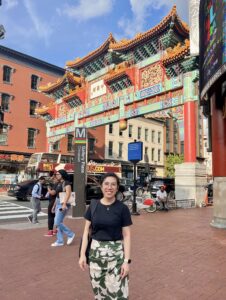
Lena Le has been in Washington, D.C., for six months as a visiting lecturer from Vietnam National University, but she is afraid of the election’s aftermath. She has promised herself not to go out onto the street the day after the elections as she is concerned for her safety as an Asian woman.
“Sometimes politics is actually an excuse for people to expose their hatreds, their grievance, and who knows what would happen?” she said.
Hate crimes have increased during each of the last four presidential elections, according to The Leadership Conference on Civil and Human Rights.
Cesilia Leiva from Argentina is “struggling” with perceptions, too. Leiva is one of 11,000 international students in the District of Columbia.
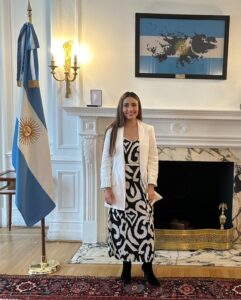
She said, “It’s difficult because I am here studying, and I am paying for the program, and I’m paying for the place where I am living, and taxes, and everything, and it’s really weird when maybe people feel like you are going to take their job.”
Leiva has a job with the Argentine government she will be returning to but international students in D.C. contribute over $500 million per year to the economy while in the country, according to the American Immigration Council.
World tuned in
“The outcome of the U.S. election has very far-reaching consequences, especially for countries like us,” said Le.
Her family and students in Vietnam are closely following the election. She mentioned the 2023 U.S.-Vietnam Strategic Partnership, which covers a range of policies, including trade, public health, and addressing war legacies.

Trump is proposing a 10% tariff on all goods imported into the U.S., which would also affect Sangyub Ryu’s friends in South Korea.
Ryu is a visiting scholar at Georgetown University. In addition to being scared about hostility toward foreigners in general, prompted by the Trump campaign, Ryu also drew attention to defense in Korea. The Korean government is also worried about increasing the defense budget “because Trump wants the government to pay more,” he said.
Zaheereldeen said her friends and family in Syria follow the policies “even more sometimes than us in America. The efforts are very tangible there when you have [U.S.] soldiers in the country,” she said of Syria.
While non-citizen residents can’t vote, they will watch the polls closely in America, along with their friends and families back home.

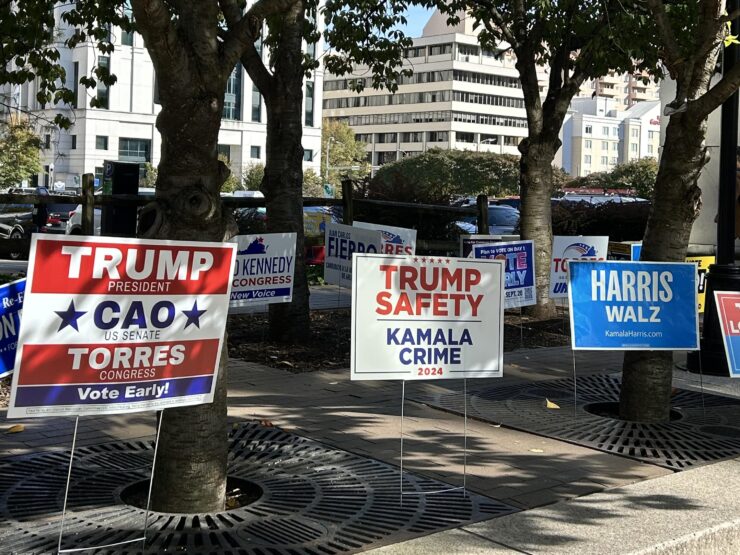
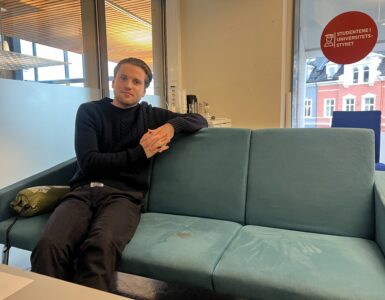
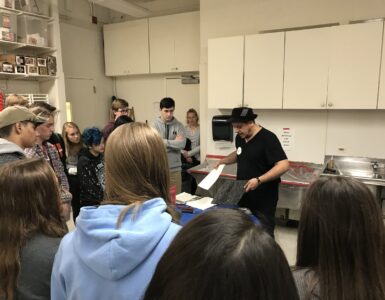
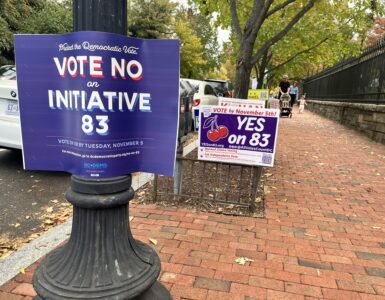










Add comment